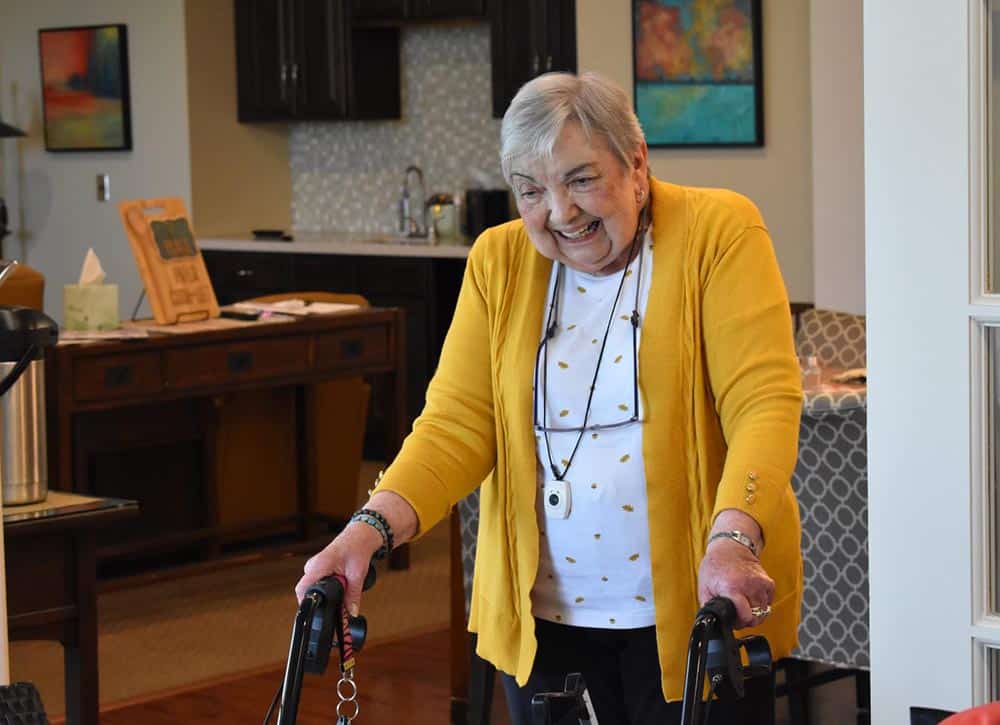Since falls are the number one killer of older adults in the United States, as reported by the Centers for Disease Control, it behooves us to practice as much prevention as possible. So often we take about preventative health measures such as diet and exercise, but do we normally include fall prevention?
What Can Elders And Their Loved Ones Do To Minimize Falls?
- Keep Moving. Regular exercise improves muscles and makes you stronger. It also helps keep your joints, tendons, and ligaments flexible.
- Yoga, Tai Chi, Pilates are excellent fall prevention techniques. These particular choices emphasize building core strength.
- Have your bone density tested. Some falls are the result, not the cause, of injury. A bone may fracture while standing up and then a fall results.
- Have your eyes and hearing tested. Wearing bifocals or trifocals can cause distortion when going downstairs.
- Ask questions about the side effects of any medicine you take. If a drug makes you sleepy or dizzy, tell your doctor or pharmacist. Read labels on over the counter medicines and supplements.
- Get enough sleep. If you are sleepy or groggy, you are more likely to fall.
- As you age the effects of alcoholic beverages increase the risk of falling. Even a small amount of alcohol can affect your balance and reflexes. Studies show that the rate of hip fractures in older adults increases with alcohol use.
- Getting up too quickly can cause your blood pressure to drop. That can make you feel wobbly. Get your blood pressure checked when lying and standing.
- Appropriate use of canes and walkers can prevent falls. If your doctor tells you to use a cane or walker, make sure it is the right size for you and the wheels roll smoothly. A Durable Medical Equipment store can help you decide which devices might be helpful and teach you how to use them safely. Medicare will oftentimes help pay for assistive devices.
- Avoid stairs in public places when elevators are available.
- Winter in Kansas City can be very dangerous for falls. Be very careful when walking on wet or icy surfaces. They can be very slippery! Try to have sand or salt spread on icy areas by your front or back door.
- Choose your shoes carefully. Wear non-skid, rubber-soled, low-heeled shoes, or lace-up shoes with non-skid soles that fully support your feet. It is important that the soles are not too thin or too thick. Today it is much easier to buy shoes that are comfortable and safe that are also fashionable. There is no excuse to wear slick soled, dangerous shoes.
- Don’t walk on stairs or floors in socks. Even slippers can be dangerous.
- Always tell your doctor if you have fallen since your last checkup, even if you aren’t hurt when you fall. A fall can alert your doctor to a new medical problem or problems with your medications or eyesight that can be corrected.
- If you have had a fall. Ask your doctor to prescribe a few sessions with a physical or occupational therapist to prevent falls in the future.
- Go to a fall prevention class. Learn proper techniques that will help you navigate different terrains.
- Fall-proof your home. Even though you love your beautiful area rugs it may be time to make a change. A trip and fall on a rug is not worth the risk.
- Avoid stairs. If your laundry is in the basement or your bedroom is up a flight of stairs it is time to think of other living arrangements.
At The Piper Assisted Living And Memory Care, We Take Fall Prevention Seriously. We Want All Kansas City Seniors To Be Safe Wherever They Live.
The winter season is particularly dangerous for broken hips and other fractures. Hospitals and Rehabilitation Center census is predictably high this time of year.
Be cautious and enjoy this time to relax, read a good book, and stay off the icy roads and sidewalks.
Spring will arrive and we can enjoy the outdoors with no injuries to deal with!
If you are interested in The Piper for yourself or for a loved one, contact us today to schedule a tour.

